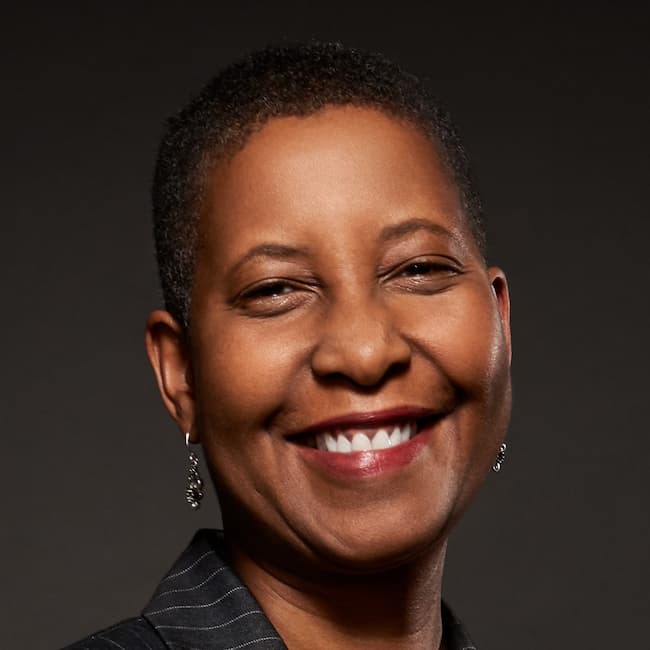Philanthropy
Planning For Philanthropy In DivorceÂ

The authors of this article explain how proper planning can help mitigate the negative impact divorce might have on past philanthropy.
When high net worth and ultra-HNW individuals divorce who have been involved in philanthropic work, dividing the assets is complex and requires expert advice.
To address the topic are Marguerite Griffin, director of philanthropic advisory services, and Steph Wagner, director of women and wealth, at Northern Trust Wealth Management. The editors are pleased to share these insights and invite replies. The usual editorial disclaimers apply. Email tom.burroughes@wealthbriefing.com and jackie.bennion@clearviewpublishing.com
In 2020, charitable giving reached a record $471 billion, with nearly 90 per cent of high net worth families participating. This growth trend will likely continue, especially when you consider the need for affluent couples to bolster strategic gifting in response to pending tax policy changes.
While this activity will benefit both charitable organizations and donors, it might cause additional challenges for couples who eventually divorce. When a divorce is imminent, charitably inclined couples would be well-advised to consult trusted legal and financial advisors who have experience dividing philanthropic assets. Outlined below are a few key considerations to help spouses understand how to mitigate the impact of divorce on past philanthropic endeavors and establish a thoughtful philanthropic plan going forward.
Dividing philanthropic assets
Assets that have already been donated to a charitable entity,
such as a donor advised fund (“DAF”), private foundation or
charitable trust, are no longer owned by the donor and therefore
not part of the marital estate. However, a divorcing couple can
still plan for how these gifts are managed post-divorce,
depending on their role as donor, advisor or trustee, as well as
the terms of an existing gift or pledge agreement. Options for
dividing philanthropic assets vary based upon the type of
charitable entity.
Donor advised fund
It’s common for the sponsoring organization, such as a community
foundation or other 501(c)(3) public charity, to allow a DAF to
be divided, or permit spouses (as donor advisors) to terminate
the DAF by making a grant recommendation and distributing the
fund’s balance to one or more charitable organizations.
Private foundations
Terminating a private foundation is not as straightforward. A
private foundation must follow stringent rules and complete
certain filings in accordance with the Internal Revenue Code and
respective state of incorporation (if applicable) in order to
avoid adverse or unintended tax consequences.
Split-interest charitable trusts
For a split-interest charitable trust (i.e. charitable remainder
trust) where one or both spouses are current income
beneficiaries, divorcing couples have several options. They can
choose to keep the trust intact, split the trust into two smaller
trusts, or terminate the trust early and distribute the present
value of the income stream to the income beneficiary and the
remainder to the charitable beneficiary(ies).
Planned gifts
For a planned gift that was made during the marriage, spouses
should decide who will be responsible for fulfilling the
commitment and which assets will be used. While the gift or
pledge agreement might dictate that one or both partners are
responsible, it may be possible to negotiate a different
arrangement with the charitable organization.
Mitigating the impact on charitable
organizations
There are several administrative and planning details spouses
will want to address with the organizations they have
historically supported, including who and where to send future
gift receipts, gift appeals, invitations and other
correspondences. How to settle outstanding pledge commitments or
change planned or testamentary gift agreements will also need to
be communicated.
If the couple has consistently been a major donor, the parties
should attempt to work together to support that charity at a
similar level for at least one year. This will give the
organization time to find donors to replace that funding. For
most non-profits, suddenly losing a long-time donor is a
significant challenge and may impact the organization’s ability
to accomplish short-term and long-term goals.
Establishing a new philanthropic identity
The financial impact of divorce might cause each party to modify
their annual giving budget. Once the proper analysis is complete
and any necessary adjustments are made, each spouse should take
time to reflect on what they want their new philanthropic
identity and goals to be. Do they want to continue to support the
same causes and organizations they did during their marriage? Are
there new causes to support, or interests to pursue that better
align with their individual values or philanthropic
preferences?
Establishing a charitable mission statement, reflecting how to achieve gifting objectives, should be considered. This can serve as the North Star for all philanthropic activities, provide guidelines for organizations and create a way to measure the impact of future gifts.
As difficult as divorce can be, proper planning can help mitigate the negative impact divorce might have on past philanthropy, as well as help redefine the future goals of each spouse for continued charitable giving.
About the authors:
Marguerite Griffin, Director of Philanthropic Advisory Services,
is responsible for the delivery and growth of Northern Trust's
philanthropic advisory services to Wealth Management clients. She
specializes in administering charitable trusts and private
foundations and facilitating family philanthropy retreats. She
also advises clients regarding impact investing, strategic
philanthropy, international philanthropy, family succession
planning and board development, governance and risk management
for nonprofit organizations.

Steph Wagner, Director of Women and Wealth, is responsible for leading the firm’s advisory practice for women facing unexpected transitions, such as death of spouse or divorce, and oversees the firm’s women’s initiative, Elevating Women. Over the years, she has developed a specialized expertise in utilizing financial strategies and empowering women with the resources to become effective stewards of their wealth. Steph has also worked extensively with women across the country to help them address the financial impact of widowhood, secure equitable settlements in marriage dissolutions, and establish a solid foundation for their next chapter.
.jpg)